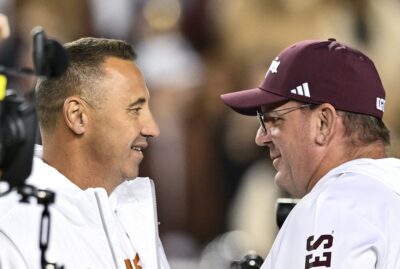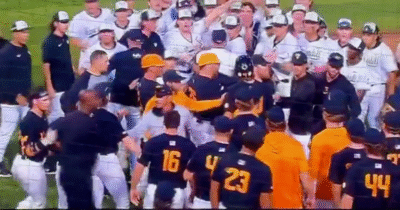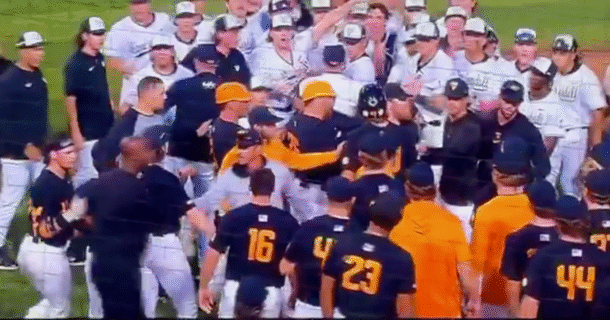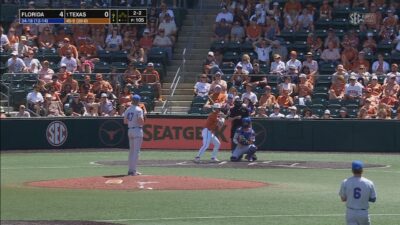Ad Disclosure
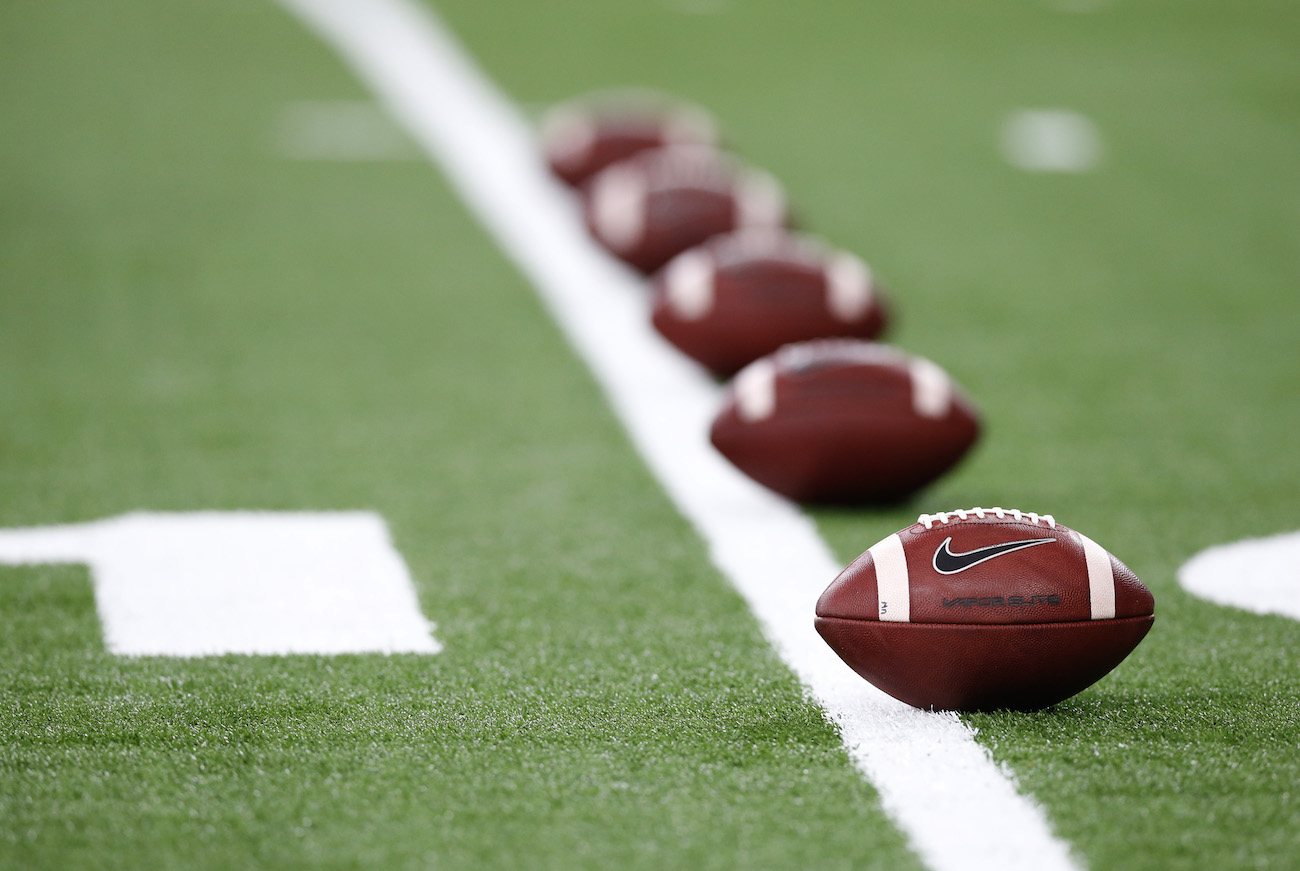
There are 5 questions I still have about positive in-season COVID-19 tests
When reports came out Thursday that at least 5 Alabama players tested positive for COVID-19, it served as a bit of a reminder.
We’re going to have an unprecedented college football season in many more ways than just fan attendance.
That is inevitable. The safety precautions in place ahead of voluntary workouts were already a reminder of that. Mandatory testing for all athletes upon a return to campus was one of them. Actually, that’s not 100% correct. There are places like Arkansas and Mizzou that aren’t testing all athletes upon return to campus, only the symptomatic ones.
Still, when reports surfaced about Alabama’s positive tests upon their return to campus, it was a bit of a wakeup call. Alabama’s statement Thursday in response to the report offered up, well, nothing:
“The health and safety of our student-athletes is a top priority. Resources and protocols are in place to ensure they receive the best medical care when returning to campus. Due to privacy laws we cannot share information specific to the health of our student-athletes.”
I don’t know about you, but I definitely had a reaction to that.
Oh, so it’s gonna be like that?
Maybe I shouldn’t have been surprised that Alabama was unwilling to even confirm that there any positive tests on campus. After all, there are still Power 5 programs like Michigan that act like providing a pregame depth chart is like tweeting out their social security number. College football is many things. Transparent isn’t one of them.
It seems that there are still plenty of questions about positive tests as it relates to the season ahead. Here are my 5:
1. When will we see a team lose a star player before a huge game?
Picture this scenario.
LSU is heading into Week 2 against Texas with all the hype in the world. College GameDay is coming to Baton Rouge. Playoff implications? Yup. Revenge game? Absolutely. A game that can shape perception about Tom Herman for the next year? No doubt.
Thursday night rolls around and a bombshell report comes out — Sam Ehlinger tested positive for COVID-19.
When will that happen? Is it inevitable? If I’m guessing, yes, we’ll see at least 1 instance in 2020 of a star player missing a showdown because of a positive test. My question is how early and how often that happens. Will we find out something like that on a Thursday or will teams keep it totally under wraps and not have that leak out until prior to kickoff? My guess is the latter.
If Alabama was any indication, maybe we won’t even find out that a player got a positive test. He just won’t be on the field and we’ll be left to assume that’s the reason. Even if teams are reporting these positive cases to local health officials for continued understanding of how and where the virus is contracted, the public’s knowledge of positive cases could be speculative.
2. Will we see the Heisman race impacted by a positive case?
Can you imagine if Trevor Lawrence was in the midst of a Heisman-caliber season in early November, only to test positive? Unprecedented, that would be.
Losing a player to a virus in the midst of a Heisman-caliber season would be unlike watching them go down with a season-ending injury. That’s usually on the field stuff. Shoot, it wouldn’t even be like a player not being academically eligible. A player contracting the virus could be something that’s completely out of their control. That’s not to say a player can control whether he tears an ACL, but this could be even more random than that. It would certainly be as unique as any reason we’ve ever seen for a star player missing action.
Here’s another question: What would happen if there was an overwhelming favorite for the award in mid-November, a la Joe Burrow, and they had a positive test that forced them to miss their final 2 games? Would they still be in position to win the award? I realize that’s a super specific set of circumstances, but at this point, those are the type of questions we could have to answer in 2020.
Here’s hoping we don’t have to cross that bridge.
3. Will the Playoff selection committee have any sympathy for contenders impacted by positive COVID-19 cases?
Do you remember when Clemson lost that game at Syracuse in 2017? The selection committee said multiple times that Kelly Bryant’s mid-game injury impacted that game, and thus, the Tigers got the benefit of the doubt with the No. 1 seed.
What about the borderline Playoff team who deals with the loss of a star player(s) because of COVID-19? How much sympathy will be given to those teams?
Like, if Alabama dominated every game it played with Najee Harris on the field and was noticeably worse in the 2 games he didn’t play (assuming they lose 1 or both of those games), how will the selection committee handle that? Should it matter?
My best guess is that if a Playoff-hopeful team found itself in that spot, it would get the 2017 Clemson treatment. In that instance, it would be evaluated like Alabama suffered a key injury. If the résumé was similar to another Playoff-hopeful team but the Crimson Tide proved they were Playoff-worthy when at full strength, that would have to be factored by the selection committee. At least I hope it would be.
4. What happens if we find out a team lied about a player’s positive case?
The dynamics at play are going to create some issues. This isn’t like a player telling a trainer that they can play through their sprained ankle. There are liability issues with not following proper protocol for positive tests.
I don’t know how this would see the light of day, but what if we find out that a team lied about a positive test? If you think that’s impossible, I’d remind you that there have been plenty of player mistreatment scandals during the 21st century in which coaches have pulled rank on trainers in order to keep a player on the field.
Remember Tim Beckman at Illinois? What about Kevin Wilson at Indiana? And obviously, who could forget about the mess at Maryland with DJ Durkin? Those situations all turned nasty in a hurry.
If it ever came out that a coach or trainer covered up a positive test, one would think we’d see some sort of NCAA-levied punishment. I don’t know how extreme that would be. We could be talking about a loss of scholarships if a team was found guilty of not following proper protocol for a positive test. Or would there possibly be eligibility issues? Perhaps the NCAA would have policies in place to treat this as a player who wasn’t academically eligible who played, though obviously the health concerns are more serious than whether a student-athlete failing classes plays linebacker.
Again, I don’t know. Hopefully these rules are put in place before the start of the season because this is unlike anything we’ve ever seen training staffs have to deal with.
5. And how many of them will lie about a positive case?
Man, I hope that number is zero. Being transparent about a potentially fatal virus seems, um, wise? Because it’s not just about whether 21-year old Power 5 football players can get through an illness. It’s about making sure proper protocol is followed so that others in the community aren’t impacted.
Can you imagine how LSU fans/players/coaches would feel if it came out that Texas knew that one of their starters previously tested positive but played anyway? Remember how upset LSU fans were with the infamous Devin White targeting call in 2018? Multiply that by 100.
If all goes according to plan, we won’t have any situations like that in 2020. Training staffs will be honest and forthright about positive tests, and we’ll have all the information out there. We’ll all agree that making the best of a bad situation is better than deceiving and endangering for the sake of wins and losses.
That would definitely mean too much.
Connor O'Gara is the senior national columnist for Saturday Down South. He's a member of the Football Writers Association of America. After spending his entire life living in B1G country, he moved to the South in 2015.




